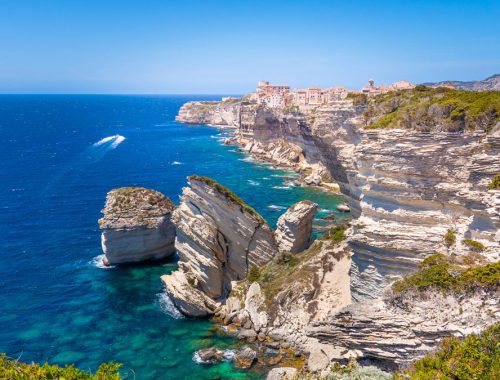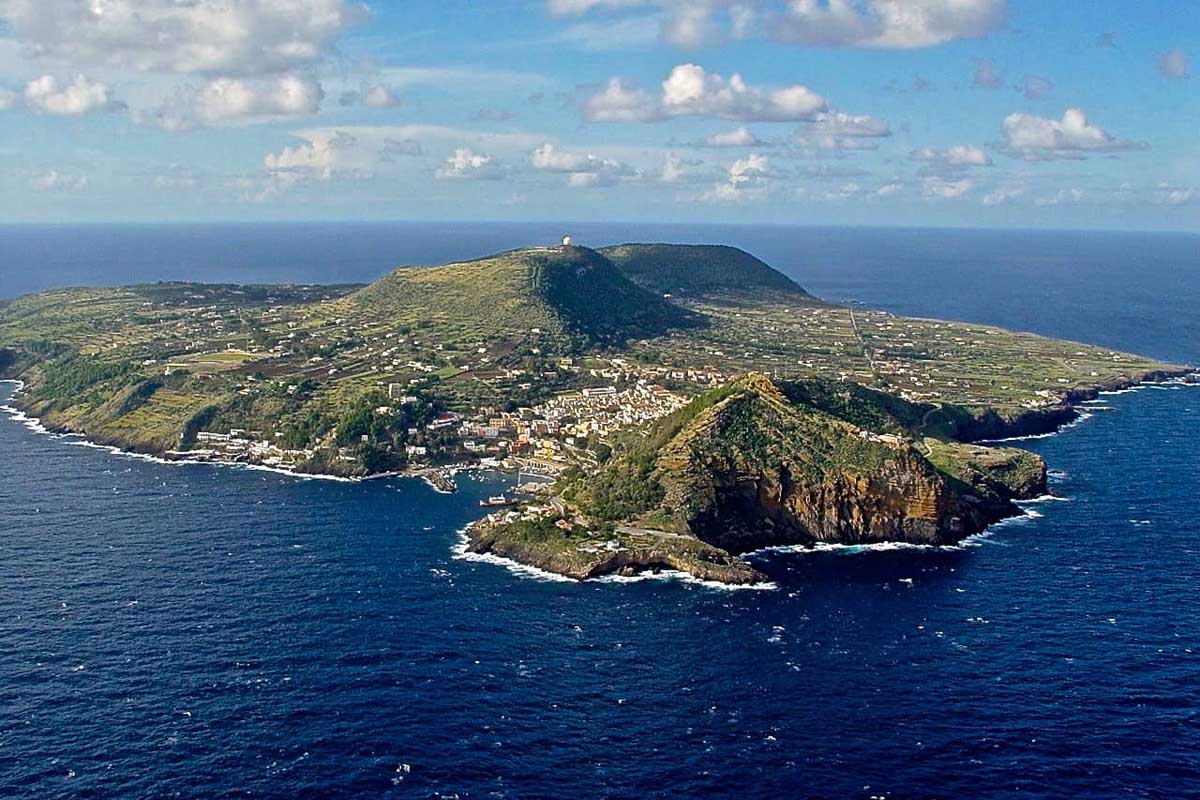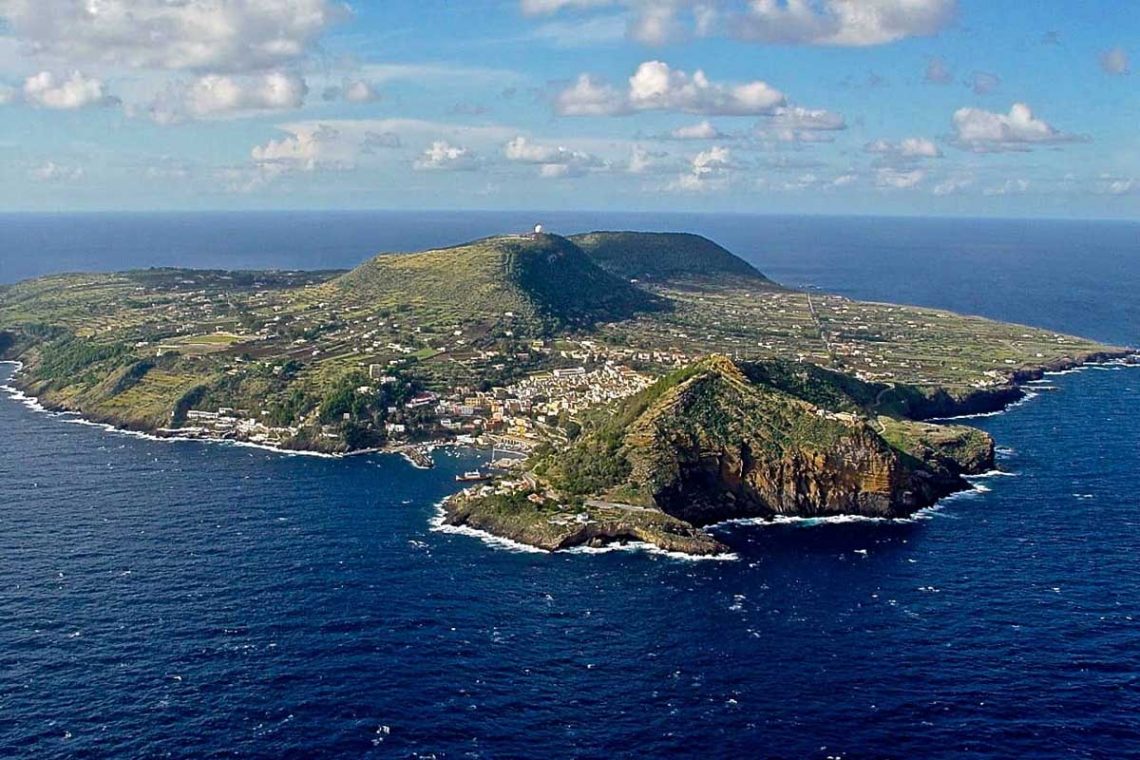
Ustica, the black and rebellious island with a gentle heart
The months of September and October are among the most favorable for those who decide to embark on a sailing cruise. The still long and sunny days allow enjoying islands and stretches of coastline finally free from the pressure of summer tourism. Among the islands that can be visited during this period and that reveal all their surprising beauty is Ustica. A special island, still untouched and in some ways with a deep rebellious spirit. This is both because it is off the common routes taken by sailors and because it offers a wild and primordial nature.
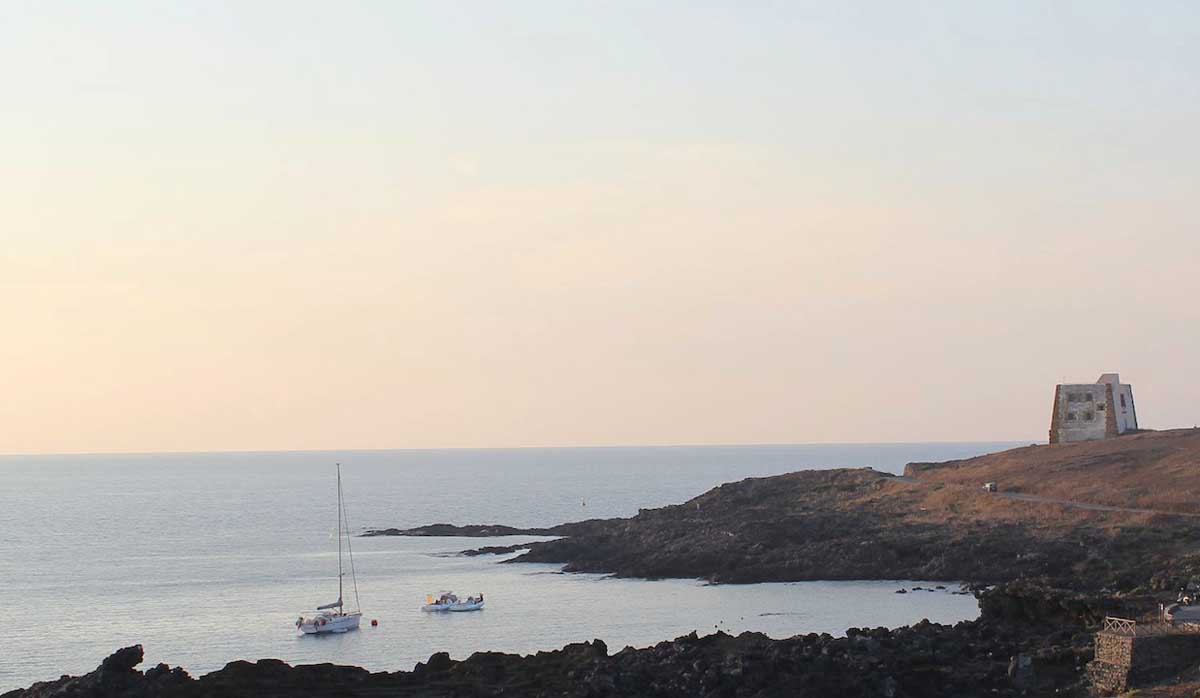
September and October are the best months to disembark
It emerges about 36 miles north of the coasts of Palermo, and like the nearby Aeolian Islands, it has volcanic origins. In fact, the visible part is actually a tiny portion of the imposing underwater volcanic complex that extends for several miles to the north. Due to its black and rugged coasts, it is also known as the ‘black pearl’ of the Mediterranean. Yet, it is also a very picturesque and colorful island: just admire the many murals that decorate the walls of the fishermen’s houses. In addition to being lively and crowded in the summer, thanks also to the large influx of people from Palermo, who own many second homes on the island.
In the fall, it offers slow rhythms and a mild climate, while in the evening, the wind can be quite vigorous. In the month of September, the beautiful patronal feast of San Bartolicchio takes place with the fish fried in the square and the fireworks.
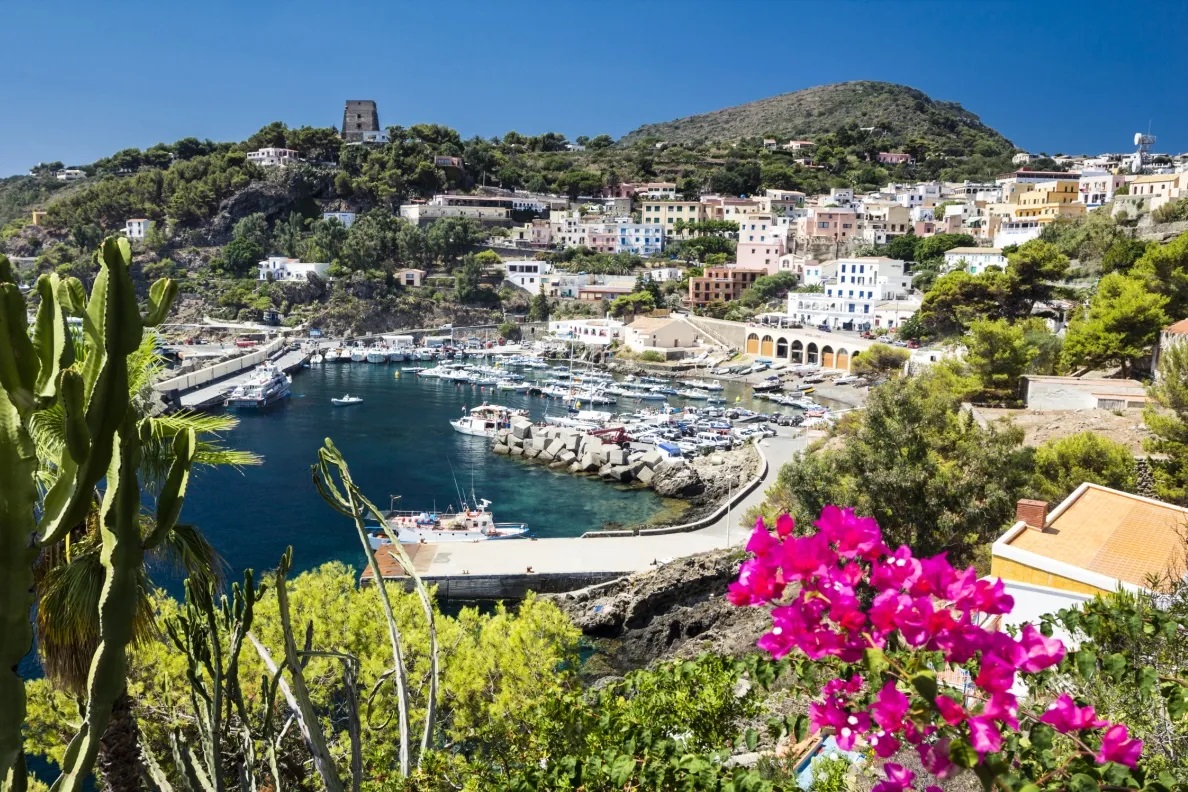
Port of Cala Santa Maria, starting point
The best stopover to enjoy Ustica by sailboat is the Cala Santa Maria port located on the northeast side of the island. Excellent shelter from northerly winds, its docks offer several boat moorings, including about a dozen for transient sailors and all nautical services, including a fuel station, a small workshop and a station for compressed air refilling for diving cylinders. The seabed, ranging from 0.5 to 10 meters, consists of sand and rock. Alternatively, you can also anchor at Cala Cimitero, in the northern part of the island.
This stretch of coast, where Tramontana district is located, is rugged and with its towering cliffs, it offers very few access points to the sea. On the other hand, the southern slope of Ustica, where San Paolo district extends, is more barren and dominated by prickly pear cactus. Three delightful and tiny bays, Cala Santoro, Cala Sidoti and l’Acquario, are instead located on the side of the island facing the sunset. The center of Ustica, on the other hand, boasts a dense forest where you can find holm oaks, olive trees, carob trees and many maritime pines.
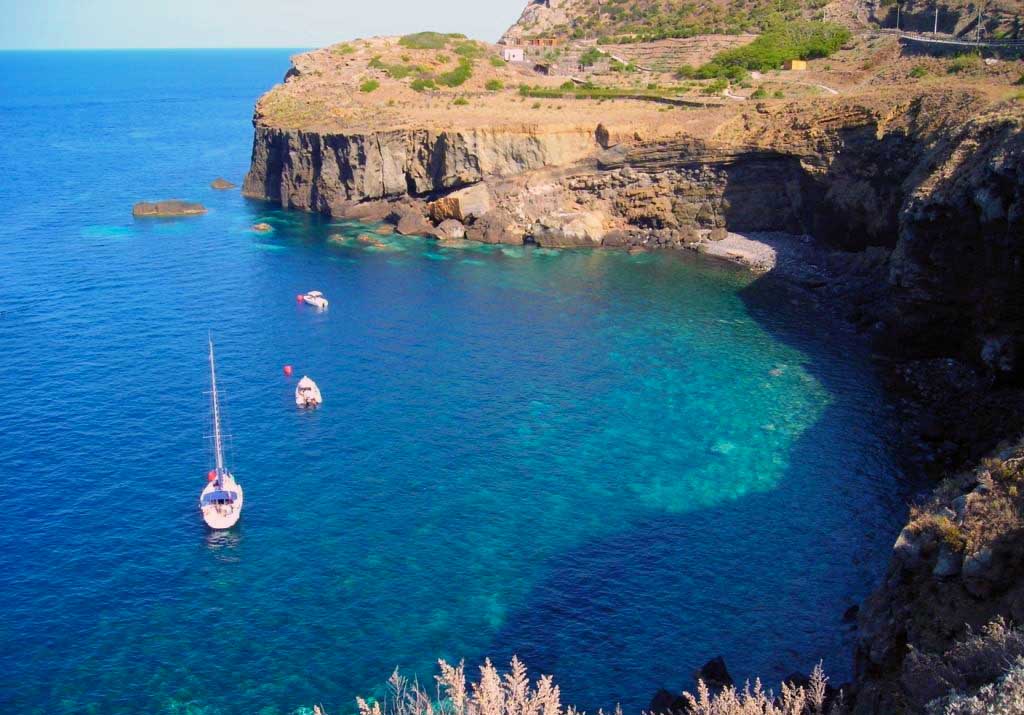
Savoring traditional dishes in the town
Moreover, it is the almost untamed nature that characterizes Ustica. Even Gramsci, who spent 34 days in exile here during the fascist period, appreciated in one of his letters the ‘charming landscapes and views of the sea, beautiful sunrises and wonderful sunsets.’ This beauty is also reflected in the island’s waters. It is here, in fact, that the first Marine Protected Area in Italy was established in 1986, when environmental concerns were still in their infancy.
From the ascent that winds up from the Cala Santa Maria port, you access the only village crossed by a single road where you can find local typical establishments and small restaurants to savor island dishes on marvelous terraces overlooking the sea. Among these are swordfish meatballs in sweet and sour sauce, grilled amberjack, lentil soup enriched with local vegetables and scented with basil or wild fennel, and a unique version of pesto made with basil, almonds, tomato, garlic and anchovies. The same road encircles the entire surface of the island and touches the two lighthouses that guard its two ends: the eastern one near Rocca della Falconiera, a fortress of Bourbon origin, and the western one in the Spalmatore district.
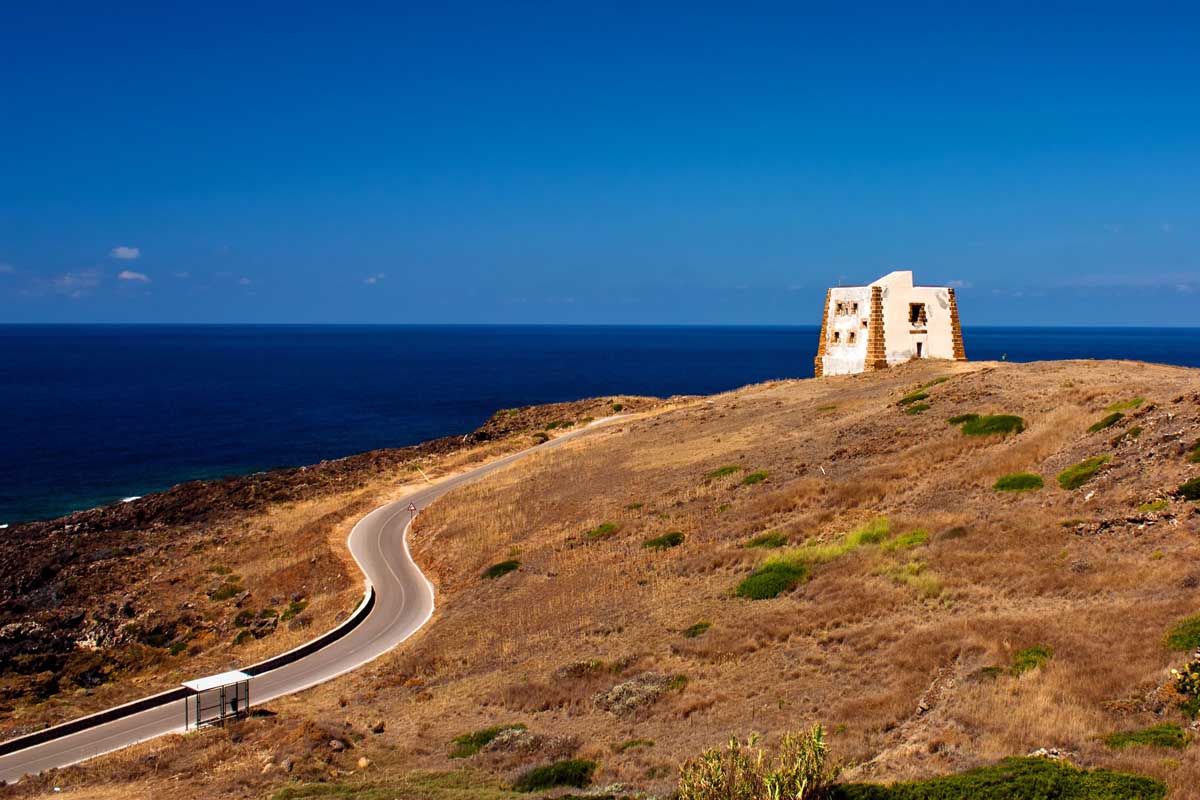
From pirate’s lair to borderland
For the rest, Ustica is full of traces of a history marked by massacres and obscure events. The ancient Romans called it “Ustum,” meaning burned because of the black basalt found everywhere, while for the Greeks, it was “Osteodes,” the island of bones, due to the remains of mercenaries who allegedly died there from hunger and thirst. Burials, tunnels and a large number of archaeological artifacts found even underwater, due to the many shipwrecks over time, testify to a constant presence, including Phoenicians and Carthaginians.
Later, it became a base for Saracen pirates and remained so for a very long time until the arrival of Ferdinand IV of Bourbon, who in 1759 imposed colonization of the island. It is in the fortress built by the Bourbons that the Archaeological Museum is now located, which is certainly worth a visit.
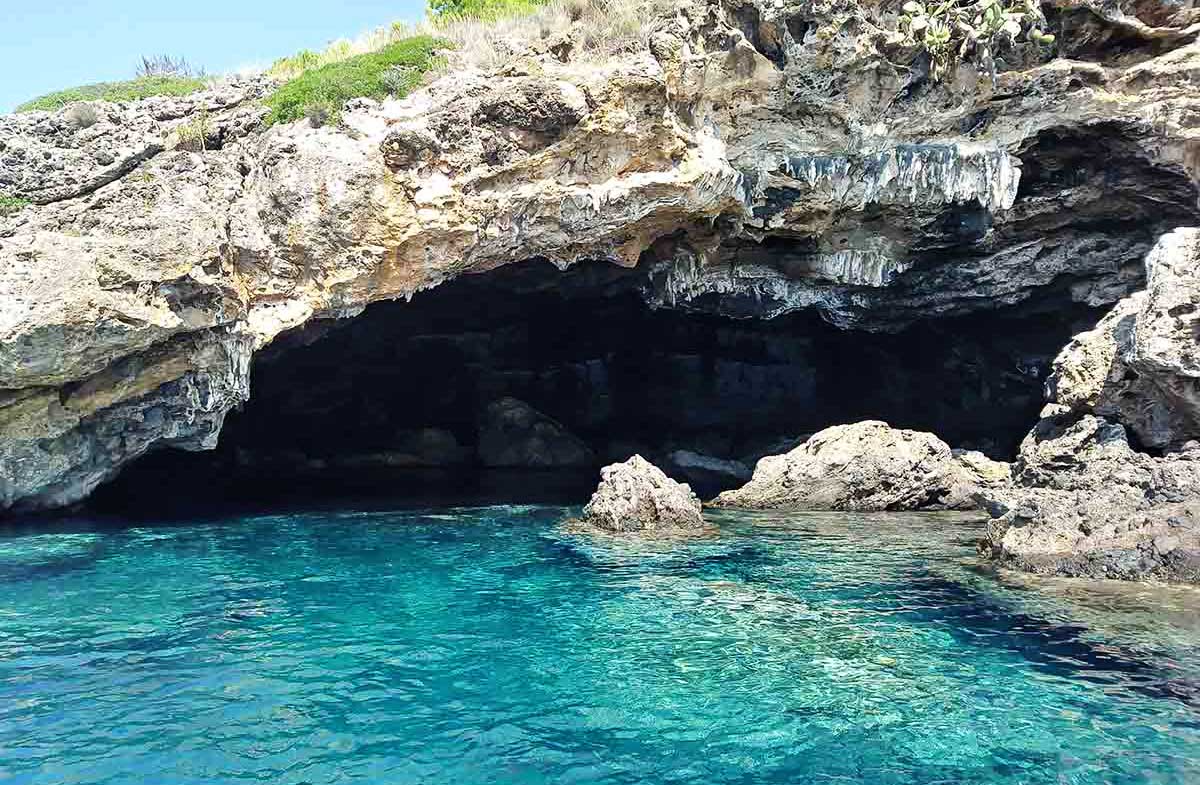
Immerse yourself in crystal-clear waters and underwater caves
But the true attraction of Ustica is naturally the sea, which makes it a true paradise for divers. Already a few meters deep, the island’s seabed offers exceptional variety in terms of colors. Serene and undisturbed, sea breams and mullets, gilt-head breams and sea bass, scorpionfish and black sea breams, or splendid specimens of groupers, parade in front of the eyes of those who immerse themselves. Among the most sought-after destinations are the Medico Reef and the Colombara Shoal with sponges and gorgonians in incredible and vibrant colors. There are also splendid caves including the Green Cave and the Blue Cave, the Shrimp Cave, the Pastizza Cave, the Gold Cave and the Columns Cave.
In short, there are many enchantments on this remote island in the Mediterranean. A place with a strong identity and rugged character, but one that hides, for those who know how to conquer it, a welcoming and kind soul.
You May Also Like
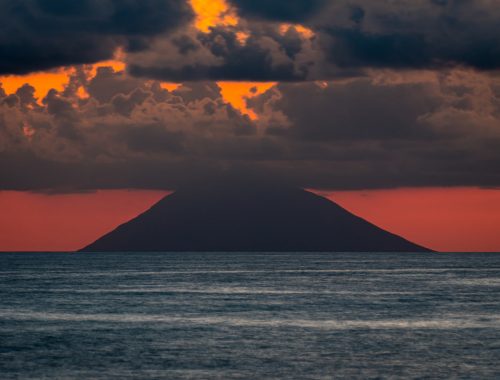
Aeolian Islands: a sailing cruise in the volcanic islands
26/10/2021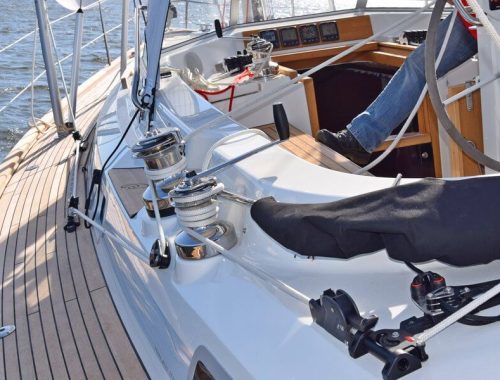
Mistakes to avoid on board
16/11/2022